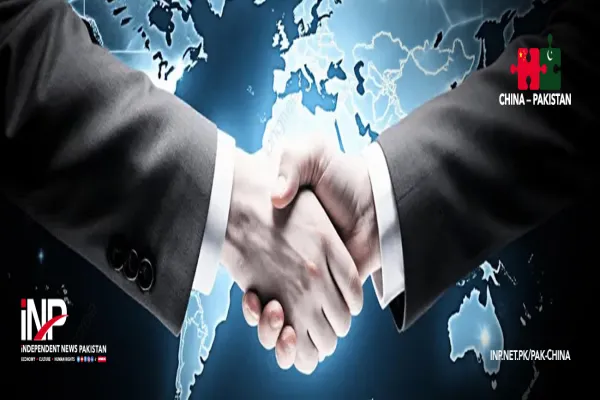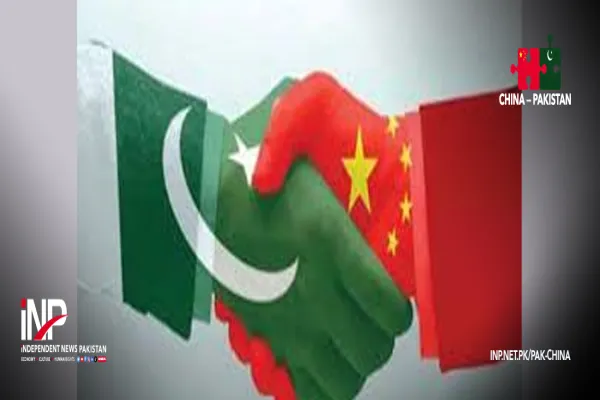i NEWS PAK-CHINA
BEIJING, April 25 (INP): Just-concluded G7 Foreign Ministers' Meeting in Karuizawa, Japan offers a glimpse into the upcoming G7 summit scheduled for May, according to a report published by Gwadar Pro on Tuesday. Traditionally, the overall tenor of the foreign ministers' gathering is expected to mirror that of the summit itself. There is nothing that should be termed as “new” in the joint statement issued by the G7 foreign ministers. In fact, several media outlets had already leaked the key points of the meeting much earlier than the start of the meeting.
The report says, this time, two recent events appeared to have seriously influenced the proceedings and tone of meeting. One, the meeting by Taiwanese regional leader Tsai Ing-wen with U.S. House Speaker Kevin McCarthy in California which compelled Beijing to conduct large-scale drills around Taiwan, and two, French President Macron’s remarks that the European Union should reduce its dependency on the United States and caution should be exercised against being drawn into a Taiwan crisis.
In fact, Macron’s remarks clearly show the emergence of fault lines within the G7 and the EU, the participants were conspicuously using the word “unity” in almost every official and unofficial communication throughout the proceedings of the Karuizawa meeting in a direct attempt to offset the impact of Macron’s candid comments about the strategic autonomy of the European countries. The unusual usage of the word “unity” was a reflection of the impeding panic and nervousness in the G7 club.
The fact is that Macron’s comments have thrown the wrench in the efforts by Japan — this year’s G7 chair and the sole member from Asia — to promote unity among members by utilizing the China threat. However, recent comments by Macron have potentially pushed the entire Western bloc in a difficult position. With tensions rising between China and the West, Japan had hoped to leverage the collective influence of the G7 to achieve its goals. But Macron's words have cast doubt on the group's ability to present a unified front.
That is why, the word “unity” assumed inordinate preference in the communication of the Japanese foreign minister Yoshimasa Hayashi who told the media during the meeting, "The strength of solidarity between the G7 foreign ministers is at a level not seen before." Similarly, the joint communique following a grueling three-day session also underscored the group's unwavering "sense of unity" in the face of the many grave threats currently facing the international system.
"Unity" became the rallying cry at the Karuizawa meeting, with member countries eager to present a united front despite their internal fissures. However, this façade of cohesion belies a deeper truth - that the interests of the United States dominate the group's agenda, and that there is growing discontent among Western nations over whether to remain a vassal of Washington or pursue an independent foreign policy. While the G7 may strive to project an image of unity, the reality is that its future success depends on finding a way to balance the competing interests of its member countries.
Apart from the routine stuff that has traditionally been the part of the previous meetings’ agenda, such as the Ukraine crisis and nuclear issues of Iran and the Korean Peninsula, being the host of this year's G7 presidency this time, Japan has injected a unique Japanese flavor into the traditional American-led formula for these gatherings. In particular, this has entailed a heightened emphasis on meddling in the Taiwan question and promoting the "China threat" narrative. By bringing these issues to the forefront of the discussions, Japan has signaled its intention to steer the group in a direction that is more in line with its own interests.
However, this approach risks alienating other member nations and could ultimately prove to be a hindrance to achieving the G7's collective goals. As tensions continue to escalate between China and the West, it remains to be seen whether Japan's strategy will pay off in the end. As Japan works to bolster the G7's efforts to contain China at the behest of the United States, it is also quietly pushing its own self-serving agenda within the group.
Reports suggest that Japan was instrumental in pushing the Taiwan question to the forefront of the group's agenda for the first time at the 2021 G7 summit in the UK, with US encouragement. One of the key reasons behind Japan’s pushing the Taiwan question forward is its attempt to divert the attention from its controversial plan to release the nuclear waste water from the Fukushima plant to the Pacific ocean.
At the G7 Meeting on Climate, Energy and the Environment held on Sunday, Japan failed to muster support it was hoping for regarding its controversial plan to discharge nuclear-contaminated wastewater into the ocean. Germany's Minister for the Environment, Nature Conservation, Nuclear Safety, and Consumer Protection, Steffi Lemke, was quite vocal in her strong opposition to this plan.
Japan is now trying to inflate the Taiwan question to cover up for its dubious plan for the release of contaminated water in the Pacific. This underscores the degree to which Japan is actively promoting a political alignment within the US alliance system that is hostile to China. However, this strategy is fraught with risk and could ultimately serve to undermine the G7's credibility and effectiveness.
Credit : Independent News Pakistan-INP









